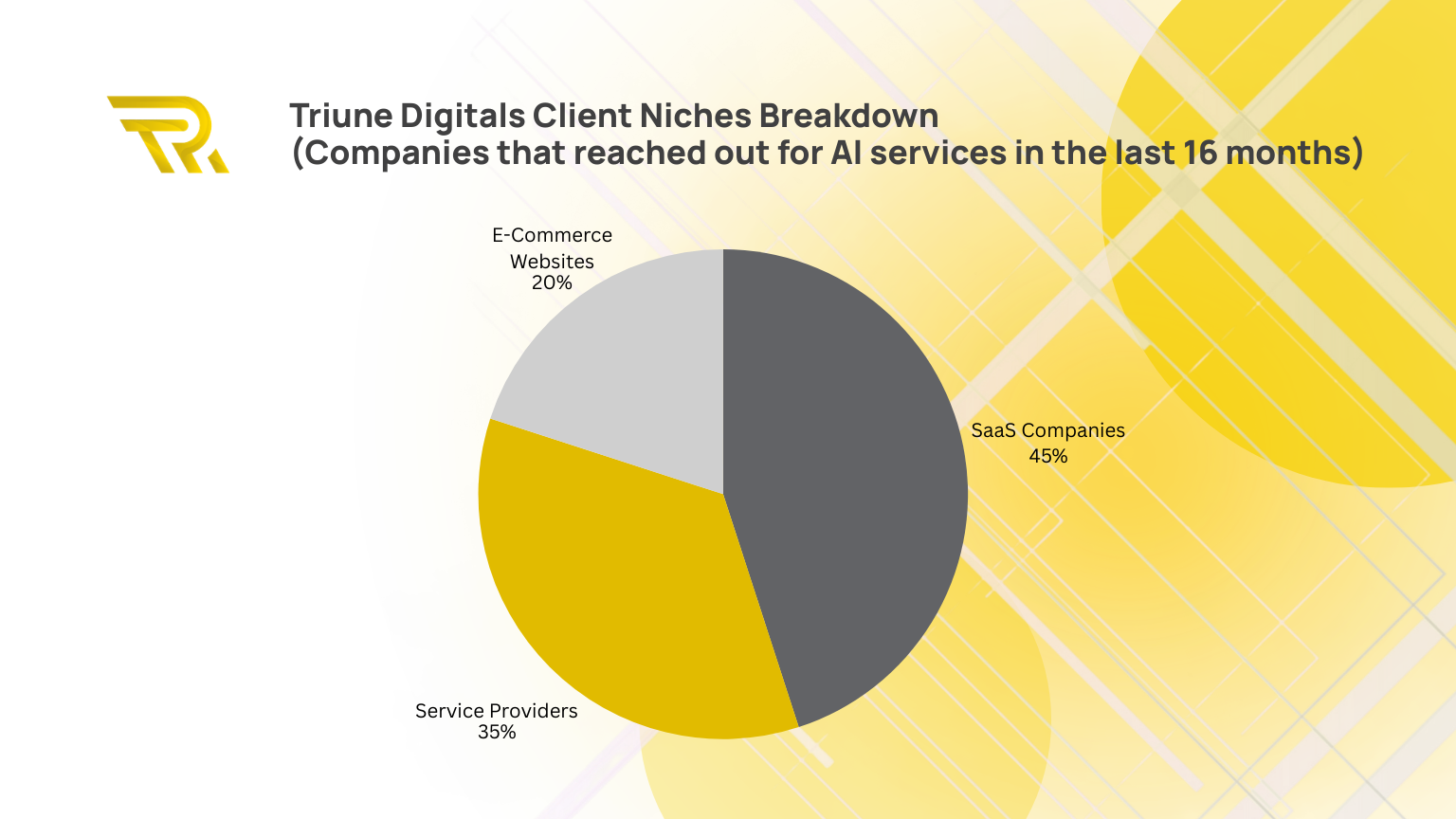So how to start an ecommerce business? Embark on a journey into the dynamic realm of e-commerce with us in 2025! The thriving landscape of online business is undergoing unprecedented growth and transformation, making it an opportune moment to delve into the world of e-commerce. As technological advancements shape the industry and consumer preferences evolve, the significance of starting an ecommerce business has never been more pronounced.
In this article, we not only provide you with a glimpse into the expanding e-commerce panorama of 2025 but also underscore the paramount importance of participating in this flourishing sector. Whether you’re a seasoned entrepreneur seeking to diversify or an aspiring business owner with a vision, comprehending the nuances of the current e-commerce market is crucial for achieving success.
Key Takeaways
- Seize the early opportunities presented by the thriving e-commerce industry in 2025.
- Conduct comprehensive market research to pinpoint lucrative niches and gain insights into your target audience and competitors.
- Harness the power of social media and craft an SEO-friendly website to establish a robust online presence. Let’s embark on this journey together and unlock the doors to success in the ever-evolving e-commerce landscape!
Unravel the World of E-commerce
Ever wondered about the heartbeat of the digital marketplace? Let’s dive into the realm of e-commerce! An e-commerce business, in its essence, is a dynamic commercial venture that thrives predominantly in the online domain, conducting the symphony of trade through electronic transactions. Picture a stage where product sourcing, inventory management, local link building, marketing, sales, and customer service take center stage, all choreographed seamlessly through the digital curtain.
These enterprises are the maestros of the internet, utilizing online technology to not only reach a vast audience but also to redefine the shopping experience, ensuring it’s as comfortable as your favorite loungewear. The magic of e-commerce lies in its ability to facilitate secure online transactions, making it a digital haven for businesses and consumers alike.
As the virtual curtain rises, we see two main players in this grand production: the business-to-consumer (B2C) model, where companies sell directly to consumers, and the business-to-business (B2B) model, catering to the needs of other businesses. It’s a world where enterprises can fashion a virtual storefront and seamlessly tap into the global marketplace.
Now, let’s spotlight the actors taking center stage in this ecommerce drama:
B2B E-Commerce Examples:
- Distributors
- Business service providers
- Software as a Service (SaaS) providers
- Office suppliers
- Manufacturers
- Wholesalers
- Freight and logistics companies
B2C E-Commerce Examples:
- Food Delivery
- Subscription Boxes
- Online Retailers
- Fashion and Apparel
- Electronics and Gadgets
- Online Travel Agencies
According to findings from Morgan Stanley in 2019, a mere 15% of total retail sales were attributed to e-commerce. This percentage witnessed a noticeable increase, reaching 21% in 2021, and further grew to approximately 22% by mid-2022, encompassing retail sales on a global scale. The e-commerce market, valued at a substantial $3.3 trillion in 2022, is poised for continued growth, with projections indicating a staggering worth of $5.4 trillion by the year 2026.
As we lift the curtain on these examples, we invite you to join the audience and explore the captivating world of e-commerce. From manufacturers orchestrating the production to online retailers setting the stage for fashion revolutions, each venture plays a unique role in this digital spectacle.

Alt text: A man looking up how to start an ecommerce business on his laptop.
Why Launch Your E-commerce Venture in 2025?
According to Statista.com there has been a huge increase in retail ecommerce sales in the past few years and continuous growth is promised up to 2026 as well. Nowadays in the ever-evolving landscape of commerce, the year 2025 beckons entrepreneurs with an array of compelling reasons to step into the dynamic world of e-commerce.
Retail e-commerce sales worldwide from 2014 to 2026

source: https://www.statista.com/statistics/379046/worldwide-retail-e-commerce-sales/
This digital frontier, driven by shifting consumer preferences and relentless technological progress, is not just a trend but a strategic move towards future-proofing your business. You’ll understand how to start an ecommerce business once you learn all the benefits that it comes with.
Unprecedented Growth
The e-commerce industry is not just growing; it’s thriving. The surge is fueled by a perfect storm of changing consumer habits and technological leaps, creating a landscape ripe with opportunities. The trajectory of this growth is not merely a spike but a sustained upward climb, promising a lucrative playing field for small business owners who seize the moment.
The Digital Shopper Onslaught
Picture a vast sea of potential customers – that’s the current scenario of online shopping. With more people embracing the ease and convenience of virtual storefronts, the e-commerce stage is set for businesses to tap into an expansive customer base. The doors to global markets swing wide open, offering entrepreneurs the chance to connect with consumers far beyond geographical constraints.
Post-Pandemic Digital Imperative
The aftermath of the global pandemic has acted as a catalyst, propelling businesses into the digital realm at an unprecedented pace. E-commerce is no longer a luxury but a necessity for businesses aiming not just to survive but to thrive. Those who embark on this digital journey now position themselves at the forefront of a fundamental shift in the way commerce operates.
Competitive Advantage Through Timely Initiation
Timing is everything, and in the realm of e-commerce, starting now equates to gaining a competitive edge. The early adopters not only navigate the learning curve swiftly but also establish themselves as trailblazers in an industry where innovation and agility are paramount. Being part of the vanguard allows entrepreneurs to shape and influence trends, rather than merely following in the footsteps of others.
Accessible E-commerce Ecosystem
Embarking on the e-commerce journey has never been more accessible. The availability of user-friendly e-commerce platforms, sophisticated digital marketing tools, google my business for small businesses and streamlined logistic services has lowered the barriers to entry. You and other entrepreneurs can now navigate the complexities of online business with relative ease, turning challenges into opportunities for growth.

Alt text: A freelancer trying to figure out how to start an ecommerce business on his laptop.
How To Start An Ecommerce Business: A Step By Step Guide
The allure of starting an e-commerce business in 2025 is undeniable, considering the exciting prospects within today’s ever-evolving digital landscape. Below, we present a detailed, step-by-step guide on how to get into ecommerce and navigate your journey into the realm of online entrepreneurship.
Market Research and Niche Selection: Crafting Your Unique Path
Embarking on an e-commerce venture starts with the crucial steps of market research and niche selection. Dive deep into understanding market trends, customer preferences, and competitive strategies. The key is not just identifying lucrative niches but choosing one that aligns with both market demand and your personal interests. This strategic combination ensures satisfaction in what you offer while meeting the needs of your target audience. A well-researched and carefully selected niche becomes the bedrock for success in the fiercely competitive e-commerce arena.
Setting Up the E-commerce Website: Building Your Digital Storefront
The creation of your e-commerce small business website is akin to laying the foundation for your online business. Choose the right platform and hosting provider that aligns with your needs, budget, and scalability goals. Craft an SEO-friendly website featuring an intuitive layout, visually appealing design, and seamless navigation. Integration of secure payment gateways ensures a smooth and secure checkout experience for your customers. Optimizing site speed and performance further enhances user satisfaction, search engine rankings, and ultimately, business growth.
Implementing SEO Strategies: Elevating Your Online Visibility
Effective SEO serves as the linchpin for driving organic traffic to your online store and boosting search visibility. To achieve this, conduct specialized keyword research tailored to the nuances of e-commerce. Strategically incorporate these keywords into product descriptions, category pages, and engaging blog posts.
Building a Robust Internal Link Structure:
- Construct a navigational web within your site that enhances user experience and aids search engines in understanding your website hierarchy.
- Ensure a balanced and logical distribution of internal links across key pages for a seamless user journey.
Strategic Keyword Integration:
- Keyword research for small business expansion is highly recommended by any SEO specialist. Identify and implement high-impact keywords specific to your ecommerce niche.
- Skillfully weave these keywords into various content elements for maximum impact.
Utilizing Schema Markup for Enhanced Visibility:
- Implement schema markup to offer detailed product information and reviews.
- Resulting in visually appealing and informative listings that drive increased visibility and conversions in the fiercely competitive e-commerce landscape.
These strategies not only boost your search visibility but also contribute to a comprehensive and dynamic approach to thriving in the ever-evolving e-commerce space. Remember there can’t be any lasting growth if you only focus on SMM and totally disregard SEO like many new entrepreneurs mistakenly do.

Alt text: A businesswoman taking notes on how to start an ecommerce business.
Social Media and Email Marketing: Amplifying Your Reach
The role of social media and email marketing in promoting your e-commerce business cannot be overstated. Creating a marketing plan for your small business simply can’t be skipped if you want to achieve greatness. Cultivate a strong social media presence to engage with your target audience, boost brand awareness, and drive traffic to your website. Targeted advertising campaigns on platforms like Facebook, Instagram, and Twitter can maximize your advertising effectiveness. Building an email list establishes direct communication with customers, nurturing relationships, and encouraging repeat purchases through effective email campaigns. Leveraging these channels significantly improves online visibility, customer engagement, and ultimately, e-commerce sales.
Conversion Optimization: Maximizing Sales and Revenue
In the ever-competitive landscape of e-commerce, mastering conversion optimization stands as the linchpin to not just boosting sales but propelling sustained revenue growth for your online store. Here’s a comprehensive approach to optimize your conversion strategies:
Optimized Product Pages:
- Elevate your product pages by infusing them with compelling descriptions that captivate your audience.
- Showcase high-quality images that vividly portray your products, allowing customers to visualize their potential purchase.
- Ensure transparent pricing information, fostering trust and transparency, crucial elements in the decision-making process.
Guiding the Purchase Journey:
- Implement strategic and effective calls to action (CTA) across your website to guide customers seamlessly through the purchase journey.
- Craft CTAs that resonate with your brand voice and prompt users to take desired actions, be it making a purchase or exploring more products.
Irresistible Incentives:
- Offer enticing incentives such as discounts, free shipping, and limited-time sales to create a sense of urgency and motivate customers to complete their purchases. Also make sure that the posts you’re publishing are high-quality content for SEO to boost your traffic further.
- Leverage these incentives strategically to not only drive immediate conversions but also to encourage repeat business.
Trust-Building Customer Reviews and Testimonials:
- Displaying customer reviews and testimonials on your product pages builds trust and acts as social proof, influencing potential buyers.
- Encourage satisfied customers to share their experiences, creating an authentic and positive narrative around your products.
By meticulously implementing these conversion optimization strategies, you’re not just enhancing the user experience but creating a robust foundation for increased conversions and the sustained growth of your e-commerce business. The journey towards elevated sales and revenue growth starts with the strategic refinement of every aspect of the customer experience.

Alt text: Close up of a woman looking up how to start an ecommerce business on her laptop.
Tips for Running an Ecommerce Business: Navigating the Digital Landscape
In the bustling realm of e-commerce, every business, from global giants to startups, seeks a digital foothold. For those planning to venture into online entrepreneurship, the following advice is invaluable:
Stand Out in the Digital Crowd:
In a world saturated with e-retailers, adhering to the traditional playbook can lead to obscurity. Distinguish your e-commerce business in 2025 by breaking away from the norm. While online shoppers are familiar with platforms resembling Amazon, offering unique value propositions and a distinct customer experience can set you apart.
Cultivate Customer Loyalty for Long-Term Prosperity:
Long-term success in e-commerce hinges on cultivating a loyal customer base. Focus on retaining top customers from the outset. These loyal customers, often the top 1% of buyers, significantly impact your business’s success. Nurture these relationships with exceptional customer experiences, personalized interactions, and exclusive rewards. By prioritizing repeat business, you lay the groundwork for sustained growth and success.
Discover Your Audience’s Digital Haven:
Maybe you’re wondering “How to start an international business?”. Well, in this or any other case you have to know the place where your audience will thrive, to start the business that you wish for. Identifying the channels, platforms, and devices where your audience is most engaged is crucial. Dive into your “Acquisition Reports” in Google Analytics to gain insights into key traffic sources and touchpoints. This understanding allows you to tailor your approach to meet your potential customers precisely where they are active.
Embark on your e-commerce journey armed with insights, strategies, and a clear vision. In the digital world of 2025, opportunities abound for those ready to seize them. As you navigate this exciting landscape, remember that your uniqueness is your strength.
Final Thoughts
Diving into the world of e-commerce in 2025 presents a thrilling opportunity for success! Picture this: by delving into comprehensive market research, pinpointing a lucrative niche, and crafting an enticing website, you’re not just starting a business – you’re laying the groundwork for a potential triumph.
Unlocking the doors to triumph means mastering the art of SEO, unleashing the power of social media and email marketing, and fine-tuning your conversion rates. It’s not just about navigating the competitive landscape; it’s about steering your ship through the vast ocean of e-commerce possibilities.
The secret sauce? Stay ahead of the game by being proactive and riding the waves of market trends. It’s not just about surviving; it’s about thriving in the dynamic and ever-expanding realm of e-commerce. So, gear up, embrace the challenge, and let the journey of e-commerce success in 2025 begin!
FAQs
How to Drive Traffic to Your E-commerce Website?
To drive traffic to your e-commerce website, leverage social media marketing, search engine optimization (SEO), and email marketing. Use targeted advertising to reach your audience, create compelling content to engage users, and optimize your website for search engines. Offer promotions and discounts, collaborate with influencers, and use analytics to refine your strategies and enhance website performance.
How Do I Start a Small E-commerce Business?
Starting a small e-commerce business involves several key steps. Begin by identifying a niche that aligns with your interests and has market demand. Conduct thorough market research to understand your target audience and competitors. Choose a reliable e-commerce platform, set up your online store, and optimize product listings. Secure reliable suppliers and establish a secure payment system. Focus on user-friendly design and prioritize customer experience. Develop a marketing strategy to promote your products and build brand awareness.
How Much Does It Cost to Start an E-commerce?
The cost of starting an ecommerce business can vary widely. It depends on factors such as the scale of your operation, the products you sell, and the technology you use. Generally, you may need to budget for website development, inventory, marketing, and operational expenses. Small businesses might start with a few thousand dollars, while larger enterprises could require a more substantial initial investment.
What Are the Four Types of E-commerce?
The four main types of e-commerce are Business to Consumer (B2C), Business to Business (B2B), Consumer to Consumer (C2C), and Consumer to Business (C2B). B2C involves transactions between businesses and individual consumers, B2B involves transactions between businesses, C2C involves transactions between individual consumers, and C2B involves transactions where consumers sell products or services to businesses.
Is E-commerce Profitable?
E-commerce can be highly profitable, but success depends on various factors such as product selection, market demand, marketing strategies, and operational efficiency. A well-executed e-commerce business with a solid plan and effective execution has the potential for significant profitability.
What E-commerce Businesses Make the Most Money?
The profitability of an e-commerce business varies, but some of the most lucrative niches include electronics, beauty and skincare, fashion, and health products. However, success is not solely determined by the industry; effective marketing, customer service, and operational efficiency also play crucial roles.





